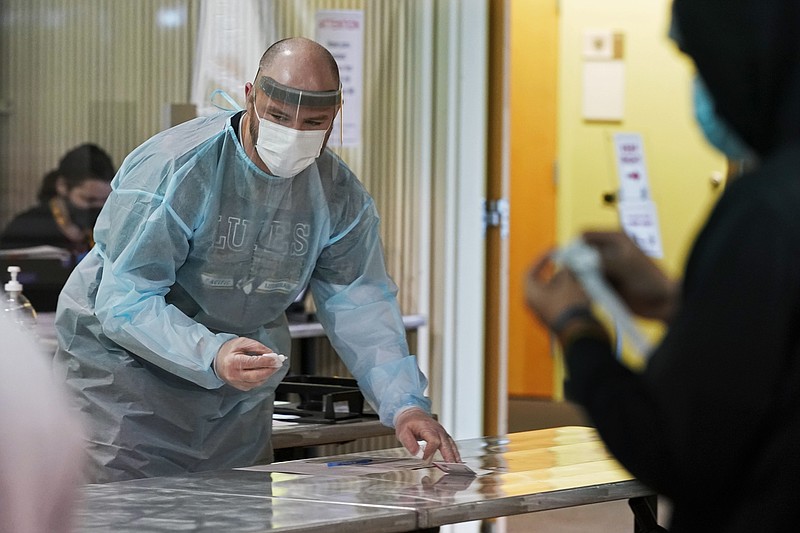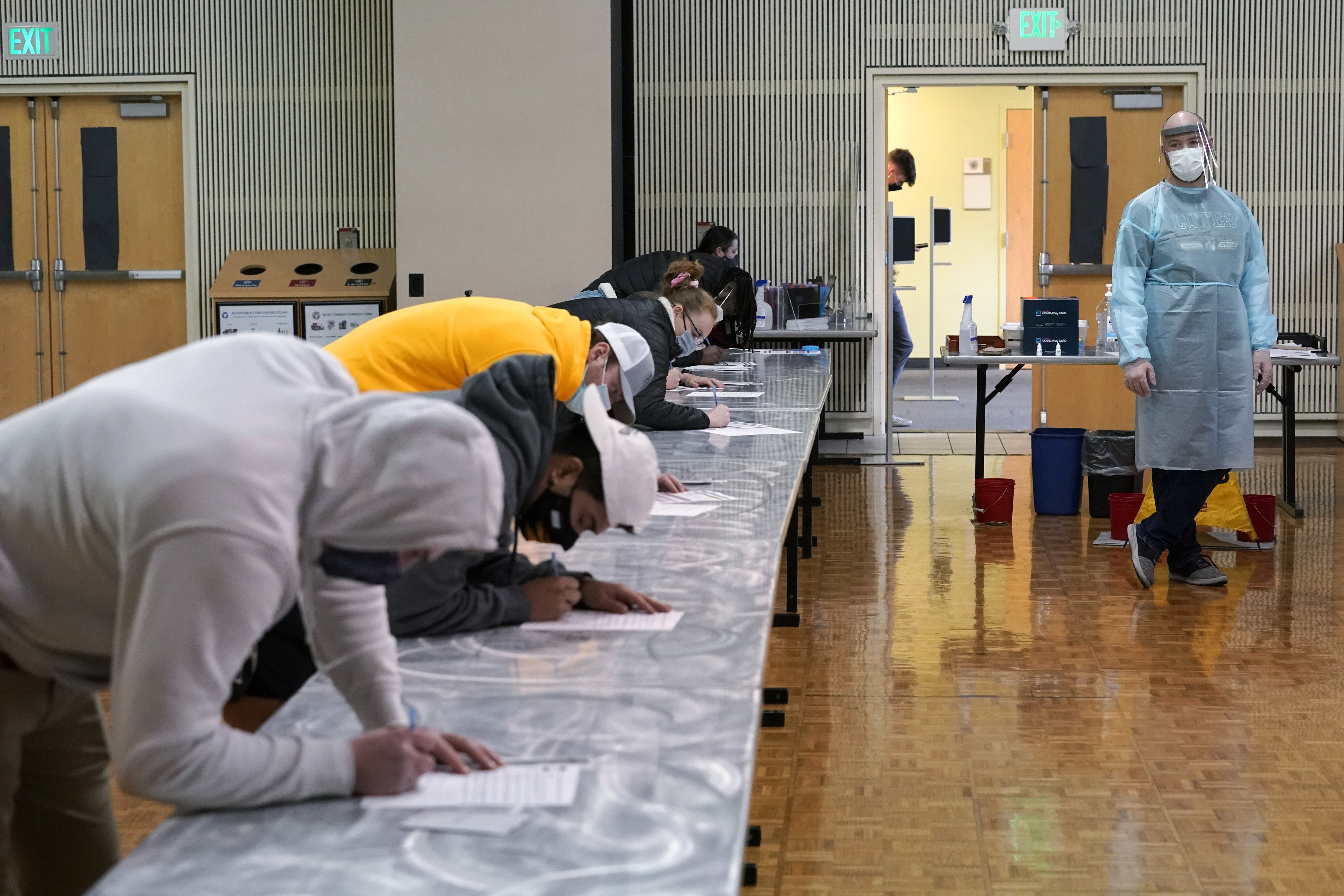PARKLAND, Wash. - At some point each week since athletes returned to campus, Pacific Lutheran football coach Brant McAdams has donned the full uniform of personal protective equipment: gown, gloves, mask and face shield.
There was never a chapter in any of the books on becoming a college football coach that addressed administering COVID-19 tests during a pandemic. Now it's something he's doing weekly to give his players the chance at a season.
"We've all joked around at some point, like, if they tell me to wear a funny hat and dress weird and hop on one leg, and that's what we got to do to be able to give these kids this experience, that's what we'll do," McAdams said.
For all the attention lavished on the Power Five - the quintet of conferences that make up the very highest tier of NCAA Division I sports - as its members tried to take the field last fall, it won't be the only college football being played during the 2020-21 school year.
The next wave arrives Saturday, when a handful of NCAA Division III and NAIA programs begin some form of a delayed season. McAdams' team will be one of those in action, making the 20-minute drive to face rival Puget Sound in one of nine games scheduled for Division III.
"We felt like we were installing for no opponent for nine months," Puget Sound coach Jeff Thomas said. "So now to be able to be in a position where we're getting ready to play a different opponent, or purposeful practice, where we're not just talking about social distancing but now leading to football-specific techniques, it's been nice to finally have some semblance of normal."
Two NAIA leagues - the Mid-South Conference and the Mid-States Football Association - will have some teams beginning play Saturday as well. Teams in 11 other Division III leagues and three NAIA leagues intend to play in the spring.
Division II has four conferences set to play, with another handful of schools scheduling games. Football Championship Subdivision programs will begin as early as next week, with the FCS playoffs set to conclude in mid-May. The FCS - which includes the Southern Conference and the University of Tennessee at Chattanooga - is the lower half of Division I, with the Football Bowl Subdivision's 10 conferences halved as the Power Five and the Group of Five.
For the smaller schools, for whom exposure and TV revenues aren't a factor, getting this far has been an exercise in flexibility and perseverance.
"I'm dizzy a lot of times, trying to remember all these pieces and how they intersect and connect," Puget Sound athletic director Amy Hackett said. "We work through all these different agencies to pull it together, and I think we've done a fairly good job. We knew we were going to have hiccups along the way."
As with the big programs that played in the fall, testing, distancing and protective equipment have topped the priority list for trying to pull off a season. In the case of Pacific Lutheran and Puget Sound, athletic departments are partnering with the university to fund the testing.
All athletes are being tested three days per week at Pacific Lutheran using nasal antigen tests but, because of staffing limitations, all coaches and athletic staff were trained and are required to administer the tests.
Imagine Alabama's Nick Saban or Clemson's Dabo Sweeney taking time away from game planning to throw on PPE and process tests, and the gulf between the power programs and what the small schools are trying to accomplish becomes obvious.
"I think it's important for our coaches to understand some of what it takes to be able to have their athletes being able to practice and compete," Pacific Lutheran interim AD Jen Thomas said. "And I think it's good for the athletes to see their coaches and other coaches coming together to be able to do this."
A few miles away, Puget Sound is using self-administered saliva tests along with twice daily attestation screenings.
Despite their efforts, the programs haven't been able to keep the coronavirus away completely. A pair of Puget Sound players tested positive in early January after returning from Christmas break, but both were discovered during a required quarantine before practices began.
At Pacific Lutheran, senior tight end Ryan Flood was one who had a late start to January practices after contracting the coronavirus over the holidays.
"Pretty much my whole family got it. My grandparents got it. It's scary," Flood said. "But it kind of got to the point where it is what it is. You've got to stay quarantined. You've got to get through it. You've got to just take care of yourself. But it was tough for a little while."
School athletic officials are fully aware one infection might mean their four-game Division III schedule could be reduced even further. Because of the uncertainty, Hackett said Puget Sound will honor its seniors during Saturday's game rather than wait for its final scheduled game on March 6 against Whitworth.
Players and coaches will have tremendous appreciation for getting at least one more game when the teams line up this weekend.
"Especially for me as a senior, I wasn't planning on coming back for a fifth year," Puget Sound linebacker Zachary Meyer said. "So just having that opportunity to get a last little bit of football is like a dream.

